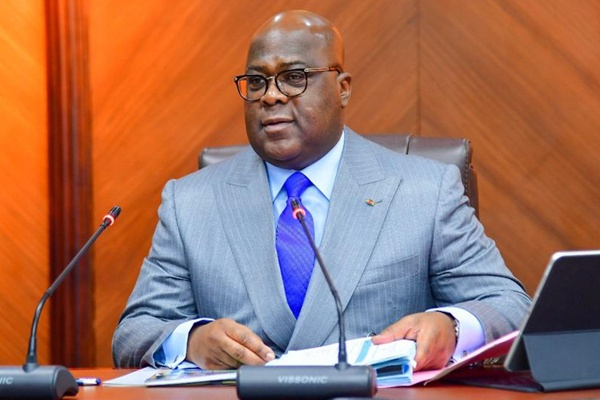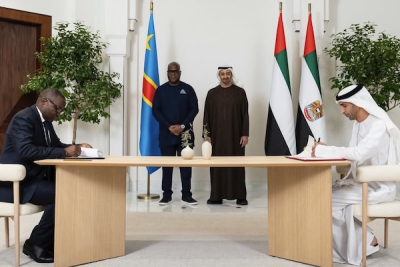• President Félix Tshisekedi has instructed the government and the Central Bank of Congo to implement immediate, coordinated measures to curb exchange rate distortions and speculation.
• Despite a 9.1% appreciation of the Congolese franc since September 19, 2025, significant regional disparities persist, allowing arbitrage and speculative behavior.
• Civil society groups denounce the use of inflated exchange rates by companies, which they say amounts to “hidden overpricing” that weakens household purchasing power.
President Félix Tshisekedi directed his government and the Central Bank of Congo (BCC) to take immediate and coordinated action to counter speculation and distortions in the foreign exchange market. The order came during the Council of Ministers held on October 3, 2025, as part of broader efforts to preserve monetary stability and protect consumer purchasing power.
According to an official government report, the Congolese franc has strengthened by 9.1% on the interbank market since September 19. However, Tshisekedi warned that worrying disparities persist between official and market exchange rates across regions, particularly in Kinshasa. “These gaps create opportunities for arbitrage that fuel speculation and threaten market balance,” the president cautioned.
The Union for the Defense of Consumer Rights in Congo (UDECOM) echoed these concerns in a letter dated September 30, 2025, denouncing commercial practices that it said undermine consumers’ purchasing power. While the official exchange rate has stabilized around 2,670 Congolese francs per U.S. dollar, some companies — particularly in telecommunications — continue to apply rates as high as 2,900 francs, which UDECOM described as a form of “hidden overpricing.”
Similar disparities have been reported in other industries. Several operators maintain prices based on exchange rates exceeding 2,800 francs, even for essential services. One Kinshasa resident reported that a hospital charged him a rate of 2,800 francs per dollar for a medical bill of $25, while the prevailing market rate that week was below 2,600 francs.
In response, Tshisekedi ordered the implementation of a unified strategy to harmonize the foreign exchange market, curb speculative practices, and shield consumers from inflationary effects. He emphasized the importance of maintaining strict fiscal discipline in line with stabilization goals, while also encouraging innovative economic approaches to boost demand for the national currency and strengthen its credibility.
“The ultimate goal,” Tshisekedi said, “is to ensure lasting exchange rate stability, protect citizens’ purchasing power, and create the conditions for inclusive and sustainable growth.”
This article was initially published in French by Boaz Kabeya
Adapted in English by Ange Jason Quenum










